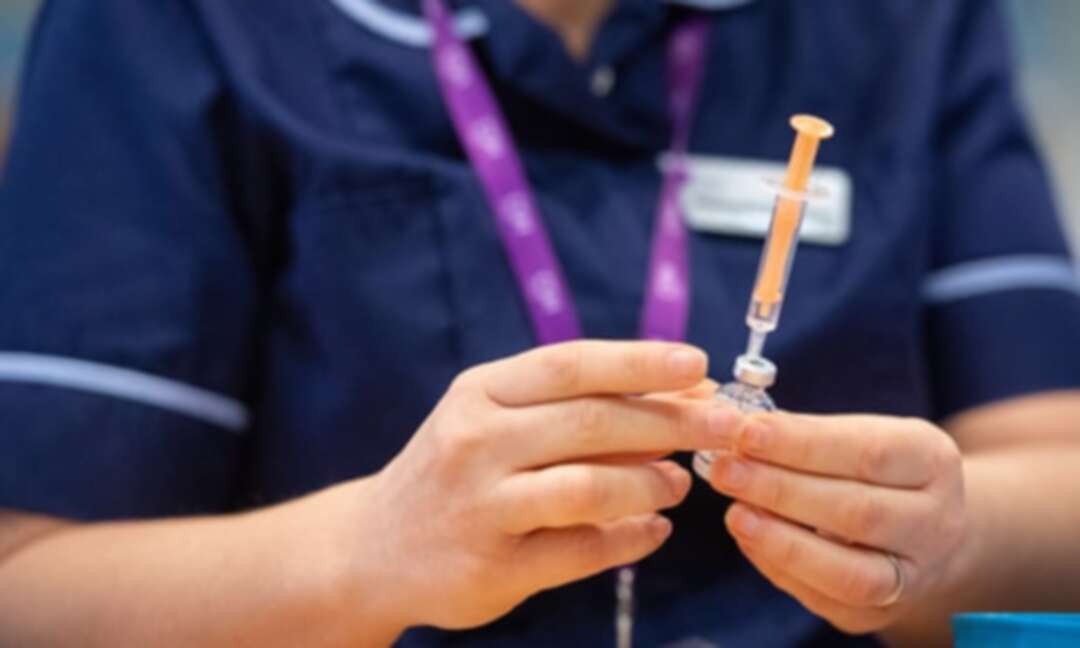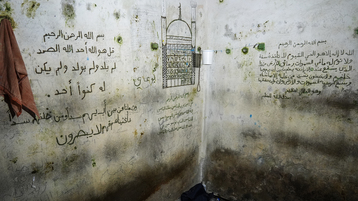-
Recovering from Covid gives similar level of protection to vaccine

PHE found immunity from earlier infection provided 83% protection against reinfection for at least 20 weeks
People who recover from coronavirus have a similar level of protection against future infection as those who receive a Covid vaccine – at least for the first five months, research suggests.
A Public Health England (PHE) study of more than 20,000 healthcare workers found that immunity acquired from an earlier Covid infection provided 83% protection against reinfection for at least 20 weeks.
The findings show that while people are unlikely to become reinfected soon after their first infection, it is possible to catch the virus again and potentially spread it to others.
“Overall I think this is good news,” said Prof Susan Hopkins, a senior medical adviser to PHE. “It allows people to feel that prior infection will protect them from future infections, but at the same time it is not complete protection, and therefore they still need to be careful when they are out and about.”
PHE recruited healthcare workers from hospitals across the UK and divided them into two groups: those who had coronavirus before and those who had not. Between June and November last year, the participants underwent fortnightly PCR tests for the virus, and monthly tests to examine the antibody levels in their blood.
ptomatic reinfection, and 75% protection against asymptomatic reinfection.
The cases are referred to as “potential” reinfections because a detailed genetic analysis of both first and second viruses must be done to confirm a reinfection, but information for the first infections was often not available.
“The immunity gives you a similar effect to the Pfizer vaccine and a much better effect than the AstraZeneca vaccine and that is reassuring for people. But we still see people who could transmit and so we want to strike a note of caution,” Prof Hopkins said. In clinical trials, two doses of the Pfizer vaccine had an efficacy of 95%, compared with 62% from two doses of the Oxford/AstraZeneca vaccine.
While the study is encouraging, it is unclear whether the same protection applies to older people. The study participants were aged 35 to 54 and would be expected to have robust immune systems. Older people tend to have weaker immune responses that are more short-lived.
Another question mark hangs over the risk of reinfection from new Covid variants spotted in the UK, South Africa and Brazil, an issue PHE will investigate as the study continues this year.
“What one thinks of the numbers is very much a ‘glass half full or half empty?’ question,” said Danny Altmann, professor of immunology at Imperial College. “To many, it may be disappointing to put hard numbers to the idea that immunity to this virus is seemingly so variable and feeble that there is a greater than 1 in 10 chance of suffering reinfection, even at five months, let alone now, when many UK healthcare workers are more than nine months out from infections in the first wave.”
source: Ian Sample
Levant
You May Also Like
Popular Posts
Caricature
BENEFIT Sponsors Gulf Uni...
- April 17, 2025
BENEFIT, the Kingdom’s innovator and leading company in Fintech and electronic financial transactions service, has announced its sponsorship of the “Innovation and Sustainable Technology Solutions Competition (GU - IST Solutions), hosted by Gulf University at its main campus.
This strategic sponsorship reflects BENEFIT’s active role in advancing technological innovation and fostering sustainable solutions to future challenges. It also seeks to empower Bahraini youth by enhancing their skills, capabilities, and competitiveness in innovation and solution development—contributing meaningfully to the broader goals of sustainable development across all sectors.
As part of BENEFIT’s active involvement in the competition, the company has announced that Hanan Abdulla Hasan, Senior Manager of Public Relations and Communication, will serve on the competition’s supervisory committee. Her upcoming participation reflects BENEFIT’s forward-looking commitment to championing academic and professional excellence.
Commenting on the occasion, Hanan Abdulla Hasan, Senior Manager of Public Relations and Communication at BENEFIT, said, “We are privileged to support this pioneering initiative, which aligns seamlessly with BENEFIT’s enduring commitment to fostering innovation and nurturing the potential of Bahrain’s youth. Our participation is rooted in a deep sense of social responsibility and a firm belief in the pivotal role of innovation in shaping a sustainable future. Through such platforms, we seek to empower the next generation with the knowledge, skills, and foresight required to develop impactful solutions that address future challenges, in line with the United Nations Sustainable Development Goals 2030.”
Dr. Aseel Al Ayash Dean of the College of Engineering in Gulf University commented, “We extend our sincere gratitude to BENEFIT for their generous sponsorship and support of the Innovation and Sustainable Technology Solutions Competition. This contribution plays an instrumental role in helping us achieve the strategic goals of this initiative, namely, cultivating a culture of innovation and sustainability, encouraging efforts that address the imperatives of sustainable development, and enhancing the practical and professional capabilities of our students and participants.”
The event will bring together a diverse spectrum of participants, including secondary school students, university undergraduates, engineers, industry professionals, entrepreneurs, academic researchers, and subject matter experts representing a wide range of disciplines.
The competition seeks to inspire participants to develop and present innovative, sustainable technologies aimed at addressing pressing environmental, social, and economic challenges. It encourages the formulation of business models that integrate advanced technological solutions with core principles of sustainability. Moreover, it serves as a platform for emerging leaders, entrepreneurs, and innovators to contribute to the advancement of the Sustainable Development Goals, promote the ethos of responsible technology, and demonstrate its transformative potential across various sectors.
Attendees will have the opportunity to view a series of project presentations submitted by participants, covering diverse areas such as eco-friendly product design, smart and sustainable innovations, renewable energy technologies, water conservation and management, waste minimisation and recycling, green architectural solutions, and sustainable transportation systems. Outstanding projects will be formally recognised and awarded at the conclusion of the event.
opinion
Report
ads
Newsletter
Subscribe to our mailing list to get the new updates!






















